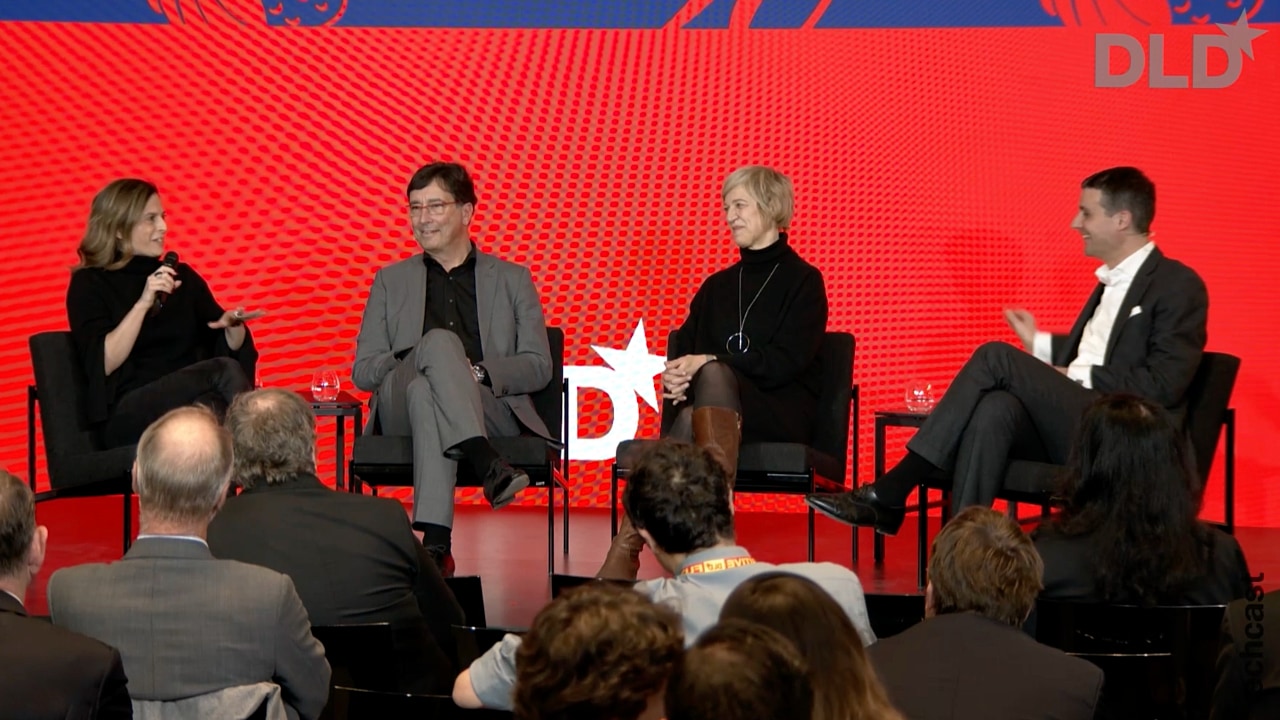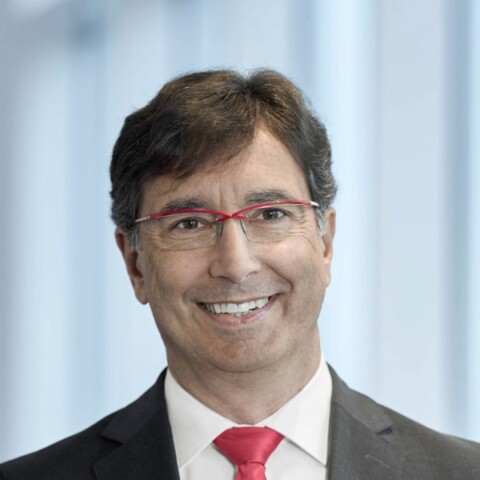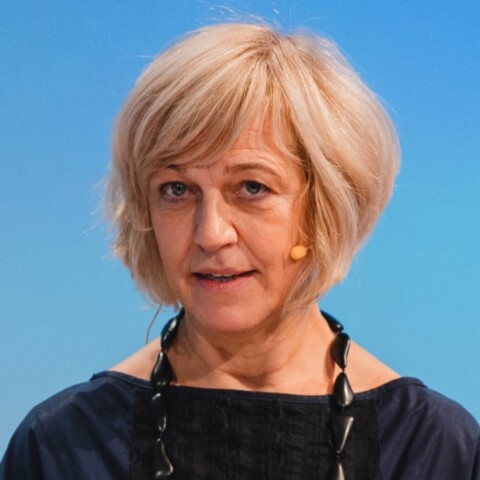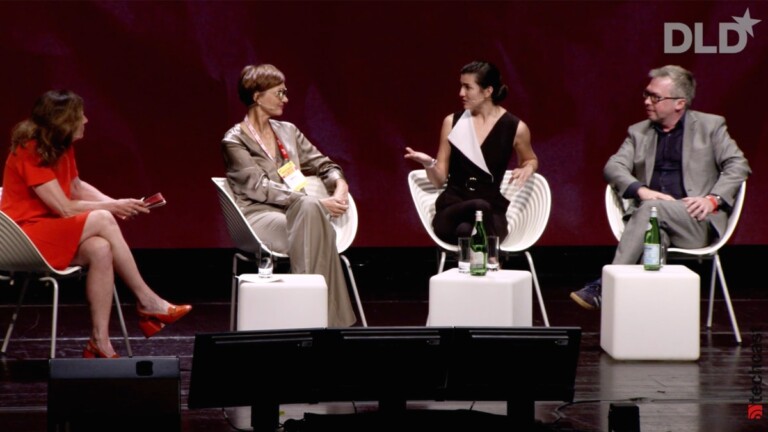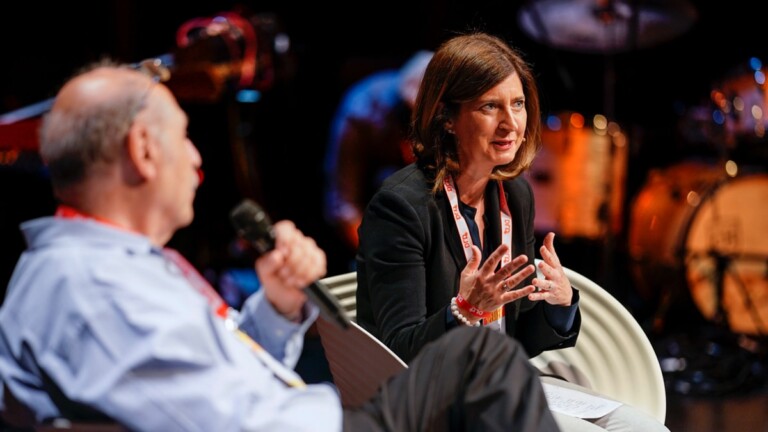How can Europe make up for lost ground in the global tech race, create more digital champions, and become more sovereign along the way? Big questions for this DLD25 panel discussion, moderated by Marc Al-Hames (Hubert Burda Media), that includes tech strategist Francesca Bria (Mercator Stiftung), Renate Nikolay (European Commission) and Niko Mohr (Friedhelm Loh Group).
“We’re not doing that great, and we definitely need to catch up”, Renate Nikolay admits, noting that Europe does not have the competitive strength in digital technologies that “the biggest single market in the world normally deserves.”
The main reasons? “We are too slow in terms of investment”, Nikolay says, “we’re too slow in terms of uptake of frontier technologies, and we don’t have the right set up to really have this innovative entrepreneurship kind of mindset in Europe.”
But the AI revolution could be an opportunity for Europe to lead, she argues, if the EU manages to successfully combine regulation with innovation and an industrial policy strategy.
Francesca Bria introduces the concept of a EuroStack, a framework for building Europe’s own technological infrastructure across multiple domains, including AI, cloud computing, robotics, and biotech.
“We have the Euro, and I think it did well for our economy”, Bria says. The EuroStack concept envisions something similar for the digital economy, not least to strengthen the continent’s position in geopolitics. “We need pan-European infrastructures, controlled by Europe, because we are in a moment of rivalries of empires.”
Bria warns against dependence on foreign tech giants, calling for policies that prioritize European champions. “I think it’s a very big mistake to give access to space, secure infrastructure, communication, which is key for our national security, to Elon Musk at the moment”, she says. “This is strategically not OK.”
Niko Mohr shares Bria’s concerns about Europe’s sluggish pace: “If it takes another 10 years to catch up, the U.S. and China will be gone”, he warns, urging Europe to adopt a “moonshot approach” by combining its industrial strengths with new technologies to create global leaders.
Winning over family-owned businesses for this effort will be key, Mohr argues, because they have significantly contributed to Europe’s economic growth over the past decades. “If we ignite this kind of thinking for new technologies in those companies again, I think we have a bright future ahead”, he says, “but we need to change something. We cannot wait another 10 years until we get something done.”
